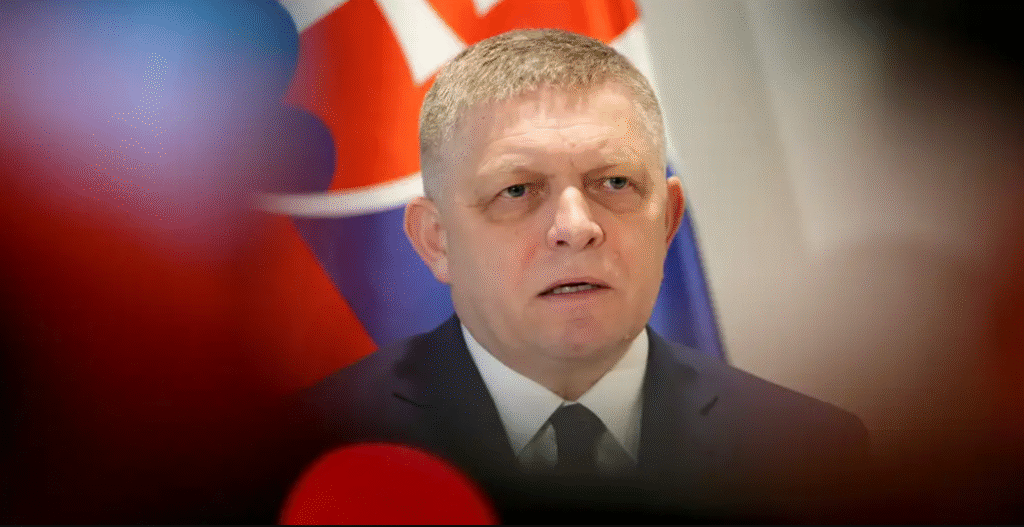Slovakia has announced that it will no longer block new European Union sanctions targeting Russia, marking a significant shift in its foreign policy approach amid the ongoing war in Ukraine. The move comes after weeks of diplomatic negotiations and signals growing unity within the EU against Russian aggression.
Slovakia’s Previous Position on Russia Sanctions Raised Concerns Within the EU
Until recently, Slovakia had been one of the few EU countries hesitant to support new sanctions on Russia, citing concerns about their potential economic impact at home particularly on energy and industrial sectors that rely on Russian imports. Prime Minister Robert Fico, known for his more Russia-friendly views, had previously opposed some of the EU’s tougher measures against Moscow.

Fico’s stance led to frustration among other EU leaders, especially as the war in Ukraine continues to escalate. Many believed that Slovakia’s position could weaken the EU’s collective response to Russia’s invasion.
What Prompted Slovakia’s Policy Reversal on Russia Sanctions?
According to government officials, Slovakia’s decision to stop blocking sanctions followed internal debates and pressure from allies within the EU.
There was also growing domestic concern over Slovakia’s image on the international stage, particularly its perceived alignment with Russia at a time when most of Europe has shown firm support for Ukraine.
Foreign Minister Juraj Blanár confirmed that Slovakia will now act in solidarity with other EU countries. He emphasized that while Slovakia still wants to protect its economic interests, it also recognizes the importance of presenting a united front against Russia’s violations of international law.
Domestic Debate in Slovakia: Balancing National Interests and Global Responsibility
While the government now supports further sanctions, the issue remains divisive at home. Some political voices and industry leaders in Slovakia have warned that additional sanctions could hurt local businesses, especially in energy, manufacturing, and agriculture.
However, public opinion appears to be shifting. More Slovakians now view the war in Ukraine as a direct threat to European peace and stability, making support for Ukraine a broader national interest.
Slovakia’s decision could encourage other hesitant nations to take a firmer stand against Russia. As the EU prepares for potentially tougher measures in response to new developments in Ukraine, unified support from all member states is essential to ensure effectiveness.
The move also strengthens the EU’s diplomatic position when dealing with other global powers, as it shows a consistent and united stance on the conflict.

